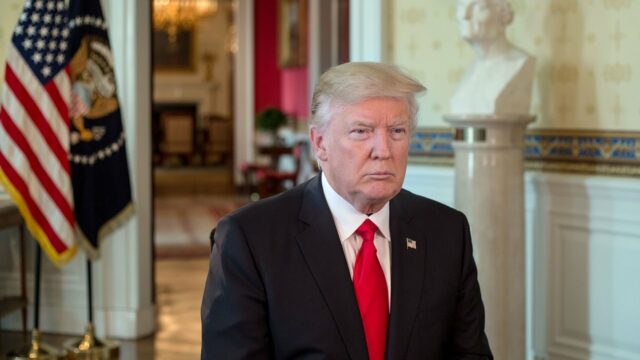NEW DELHI: Under fire over the ‘Black Lives Matter’ protests at home, the Trump administration received a major jolt as five Iranian oil tankers recently reached Venezuela carrying refined fuel. The fact that Iran under ‘maximum pressure’ from the U.S. would reach out openly and defiantly to another nation suffering from similar U.S.-led sanctions, was a signal not lost on the U.S. or the world.
Dr Wael Awwad, a South Asia-based journalist and an expert on West Asia, says the protests would create a ‘ripple effect’ across the region. “I see the Iranian move as a game-changer in West Asia. It will embolden nations such as Yemen, Palestine and Syria to up the ante after Iran’s move. The U.S. has clearly suffered a loss of face,” he said.
Some would say, Awwad is putting it mildly. U.S. sanctions have crippled the Iranian economy – the country has gone from 2.5 million barrels a day in April 2018 to less 300,000 barrels a day in exports. Yet Iran has not only held its own but its allies — Oman, Qatar and Kuwait — have remained with Iran while the UAE, an ally of Saudi Arabia, has now gone into talks with Tehran. It doesn’t bode well for U.S. strategy in West Asia.
Deal On The Anvil?
But there may be more to the story. The recent swap of prisoners between the U.S. and Iran mediated by Switzerland suggests that backchannel talks may be in the offing with a possible deal on the anvil. President Trump himself alluded to this in a tweet last week: “Thank you to Iran, it shows a deal is possible!” It came after Tehran released a U.S. Navy veteran.
“The President’s tweet suggests something is in the air. I would not rule out a dramatic announcement just before the U.S. elections,” says Professor AK Pasha of Jawaharlal Nehru University in Delhi. Others disagree since the prisoner swap may have been on the anvil for some time. They also point out that the U.S. has not budged from its ‘maximum pressure’ strategy to overthrow the Iranian government. Nor has Tehran backed away from its insistence that the U.S. lift sanctions and restore the nuclear deal before any talks.
“The main issue before Trump is the domestic election which he has to win,” says a senior diplomat. “Central to this is the Jewish lobby which is anti-Iran. Though this lobby has certainly splintered the fact remains that around 10-12 prominent Jews want the president to keep up the pressure on Iran. Casino magnate Sheldon Adelson is one of the most prominent. So, I see the call for a deal as just a photo-op for Trump ahead of elections.”
Has the U.S. failed in West Asia?
Trump’s attitude sums up the failure of U.S. foreign policy to affect change. Earlier sanctions were used usually with the backing of the UN to get a ‘rogue’ nation to modify its behaviour. Today, in the Trumpian age, the sanctions seem to be an end in itself without any defined foreign policy goal.
The continuation of sanctions on Iran when there is a COVID crisis in the country is a case in point. The sanctions hurt the Iranian people, it did not change Tehran’s behaviour. This is true of other nations too. Sanctions against Russia, China and even Venezuela have not yielded much in the way of change. Peacemaking attempts have failed with all Palestinian and Arab leaders rejecting the ‘deal of the century.’
The other failure for the U.S. vis a vis Iran is a bid to build up backchannel talks. Tehran has underscored Switzerland’s role in the prisoner swap, hinting that window of dialogue with the U.S. is fast running out. President Emmanuel Macron discovered this in 2019 at the UNGA when he tried to broker talks between Presidents Trump and Rouhani and failed.
More crucial though is Oman. Crucial during the Obama presidency the ‘Muscat hotline’ to Tehran was enough to secure the former president the release of American hostages and the all crucial nuclear deal. While Muscat can still pull the U.S. and Iran back from the brink, the death of ‘peacemaker’ Sultan Qaboos bin Saeed in January this year will be felt and it remains to be seen if the new Sultan Haitham bin Tariq can play the same role.
Pasha feels that regardless of this, the U.S. now realises it has to change course. “The fact that Russia and China have remained with Iran despite U.S. pressure and the fact that the Trump administration has pushed back from confrontation in some areas is a grudging acknowledgment the policy hasn’t worked.”
The litmus test for this line though will be in October when the U.S. is expected to press the UNSC to extend the arms embargo on Iran. Trump has no option since elections will be so close. But if the embargo is for a limited period, that could signal a fresh Trump approach to Iran, post elections, and assuming he wins re-election.
Traveller, bibliophile and wordsmith with a yen for international relations. A journalist and budding author of short fiction, life is a daily struggle to uncover the latest breaking story while attempting to be Hemingway in the self-same time. Focussed especially on Europe and West Asia, discussing Brexit, the Iran crisis and all matters related is a passion that endures to this day. Believes firmly that life without the written word is a life best not lived. That’s me, Ashwin Ahmad.





